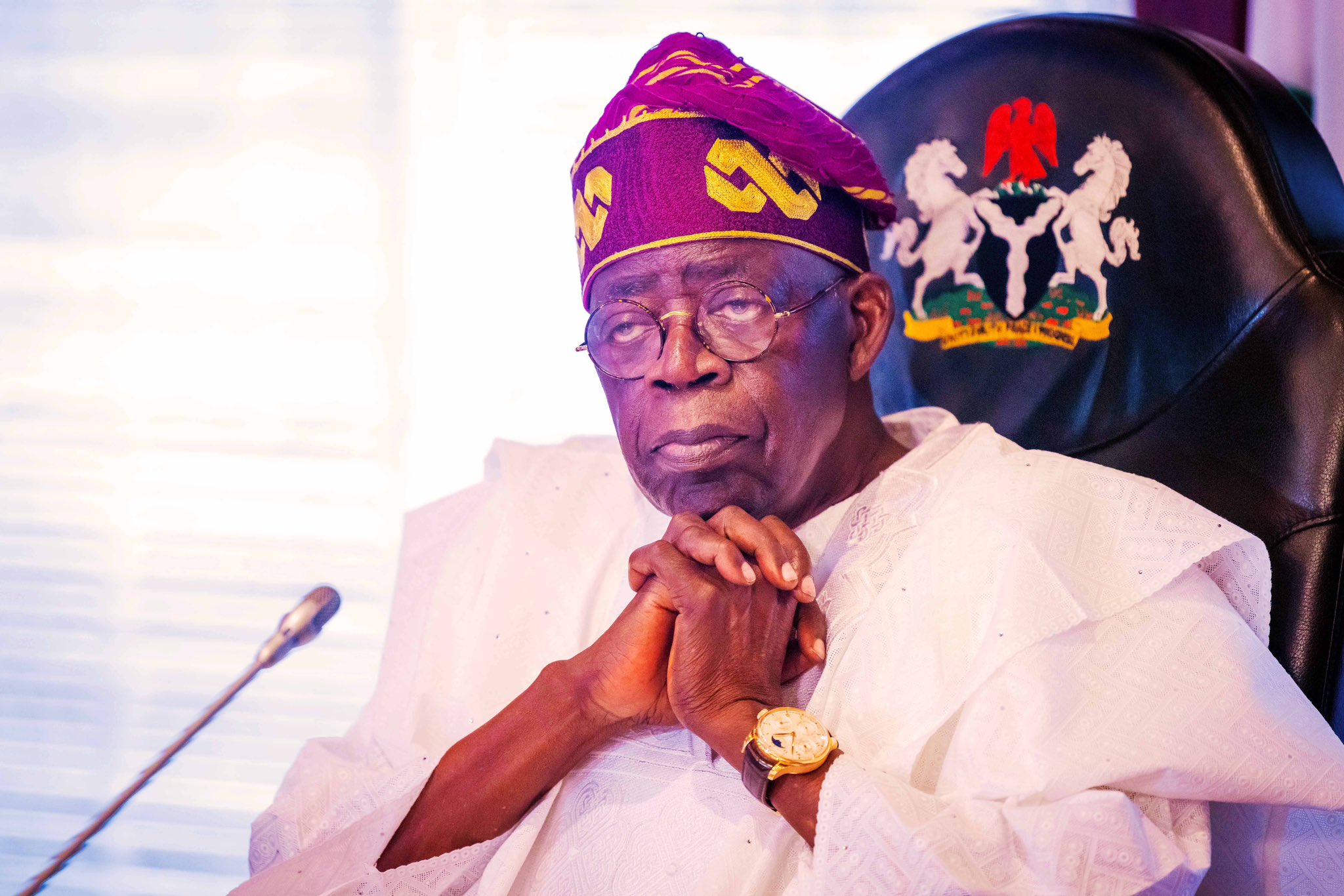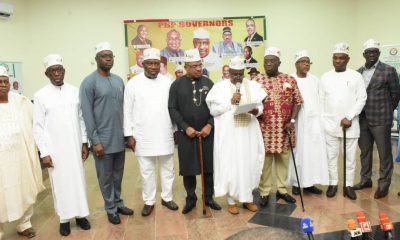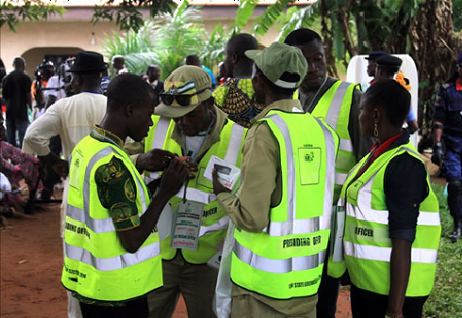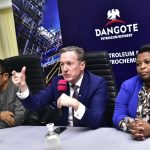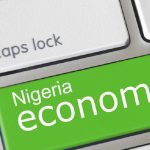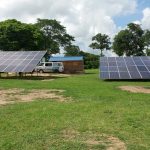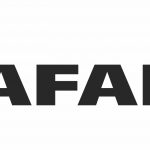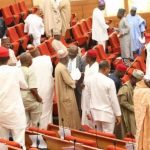General
PDP Governors List Failures of Buhari Administration
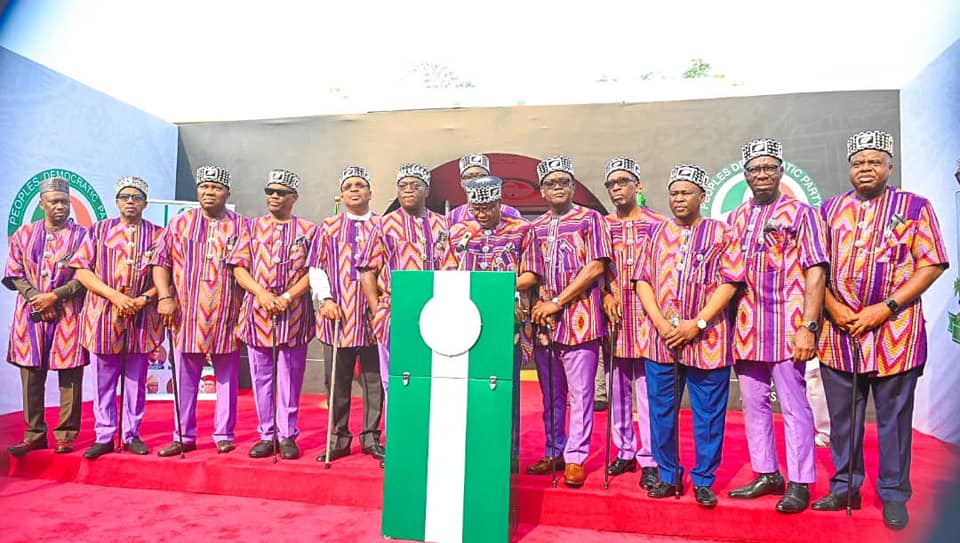
By Modupe Gbadeyanka
Governors elected under the platform of the opposition Peoples Democratic Party (PDP) have lamented the excruciating hardship and suffering Nigerians are currently going through.
The Governors under the PDP Governors’ Forum said the ruling All Progressives Congress (APC) has turned the country upside down, making life very difficult for citizens.
They said the lives of Nigerians under the administration of President Muhammadu Buhari have been miserable unlike when the PDP was in power from 1999 to 2015.
At the end of their meeting in Aba, Abia State, they said the opposition party was ready to “take over and offer qualitative leadership options to rescue the nation,” appealing to Nigerians “to reject the APC” in the 2023 general elections.
They claimed the failures of the ruling party as below;
Diesel which is critical for the running of SMEs was N131.47 in 2015, it now costs above N700
- Fuel: Official and Black-Market was N87/155 in 2015, it now costs N167/350.
- Aviation Fuel/Air Ticket Rate on Domestic Flights was N110 per Litre/N18,000 in 2015, it now hovers around N700 per Litre/N70,000, where available. Indeed, the scarcity of fuel that has resulted in the loss of several man-hours is a disgrace to Nigeria.
- The collapse of the National Grid (126 times in 7 years – (June 2015 to March 2022) and its consequences for non-availability of power is most unfortunate.
- Kerosene (NHK) used by the ordinary Nigerian for cooking and power was N180 in 2015, it now sells at N450.
- Liquefied Petroleum Gas (LPG) – 12.5kg Cylinder sold for N2,400 in 2015, is now sold at between N8,750 and N10, 000.
- Prices of basic foodstuffs are now three times higher than what they used to be in 2015. Staple foods such as rice, beans, cassava flakes are now slipping out of the hands of average Nigerians. Indeed, a Bag of Rice sold for N8500 in 2015 is now N39,000.
- Electricity was N14.23 per kilowatt in 2015, it is now N38.530, and not even available.
- The unemployment rate was 11.4% in 2015, it is now over 33%, one of the highest in the world.
- The poverty rate in 2015 was 11.3% but now about 42.8%.
- Accumulated Inflation in 2015 was about 4%, it is now 15.50%; Inflation Rate was 9.01% in 2015 and now 15.7%.
- Perhaps the Exchange Rate has been one of the most disastrous. N150 to a dollar was the parallel market (patronised by most businessmen and Nigerians) rate in 2015, it is now about N580 to $1 in the parallel market and still rising.
- Debt and Debt Servicing: Domestic Debt of N8.4T and External Debt of USD 7.3b was incurred between 1999-2015.
While Domestic Debt of N7.63T (June 2015-Dec 2020) and USD28.57b as at Dec 2020 was incurred. External debt of USD21.27b was incurred between June 2015 and 2021.
- National Debt to GDP Ratio was 23.41% (2016) it is now 36.88% (2022).
- The Corruption Index has risen from 136 in 2015 to 150 now.
- Nigeria’s Misery Index, an indicator used in determining how economically well off the citizens of a country are, is usually calculated by adding the seasonally adjusted unemployment rate to the annual inflation rate, which has moved from 14.75 per cent in 2015 to 50.48 (2021).
- The major threat to the agricultural sector and food security in Nigeria is insecurity. In the northeast of Nigeria, it is estimated that no fewer than 70,000 hectares of arable farmland have been abandoned in the affected States and Local Government areas. The trend is the same all over the country. This further contributes to food inflation. The APC led Federal Government must take steps to cooperate with States to bring security down to the grassroots.
In addition, the Governors accused the Nigerian National Petroleum Company (NNPC) Limited of siphoning money with the support of Mr Buhari, who doubles as the Minister of Petroleum.
“The PDP Governors once again decried the inability of the NNPC to make its statutory contributions to the Federation Account, in spite of oil selling at above $110. It is patently unconstitutional for NNPC to determine at its whim and discretion when and what to pay to the Federation Account, as it is a mere trustee of the funds for the three tiers of Government: Federal, States and Local Governments. We once again, call for investigations and audits of the quantity of consumption of fuel ascribed to Nigerians and for the deployment of technology at the filling stations to determine in a transparent manner the volume of consumption.
“The Governors would resist any further attempt by NNPC to ascribe unsubstantiated subsidy claims to other tiers of government.
“NNPC deducts N8.33 billion monthly for the rehabilitation of the refineries in Nigeria. To date, no refinery is working.
“On priority projects of the nation’s oil industry, NNPC deducted N788.78 billion for various investments between 2018 and 2021 without recourse to FAAC.
“NNPC in 2021 alone claimed to have paid over One Trillion Naira as petroleum subsidy. Indeed, in the month of March 2022, N220 billion was deducted as oil subsidy with a promise that N328 billion will be deducted in April 2022. This is unacceptable.
“NNPC and FIRS, as well as other remitting agencies, continue to apply an exchange rate of N389/$1 as against the Import and Export window of N416/$1. The extent of this leakage can be better felt if this rate is compared to the current N570/$1.
“From available records about N7.6T is withheld between 2012 and 2021, by NNPC from the Federation Account. All these are said to be payments for oil subsidies.
“Conclusively, we believe that all these leakages in NNPC have been made possible because the President is also the Minister of Petroleum. The urgent separation of these two portfolios has become necessary,” they alleged.
General
REA Expects Further $1.1bn Investment for New Mini Power Grids
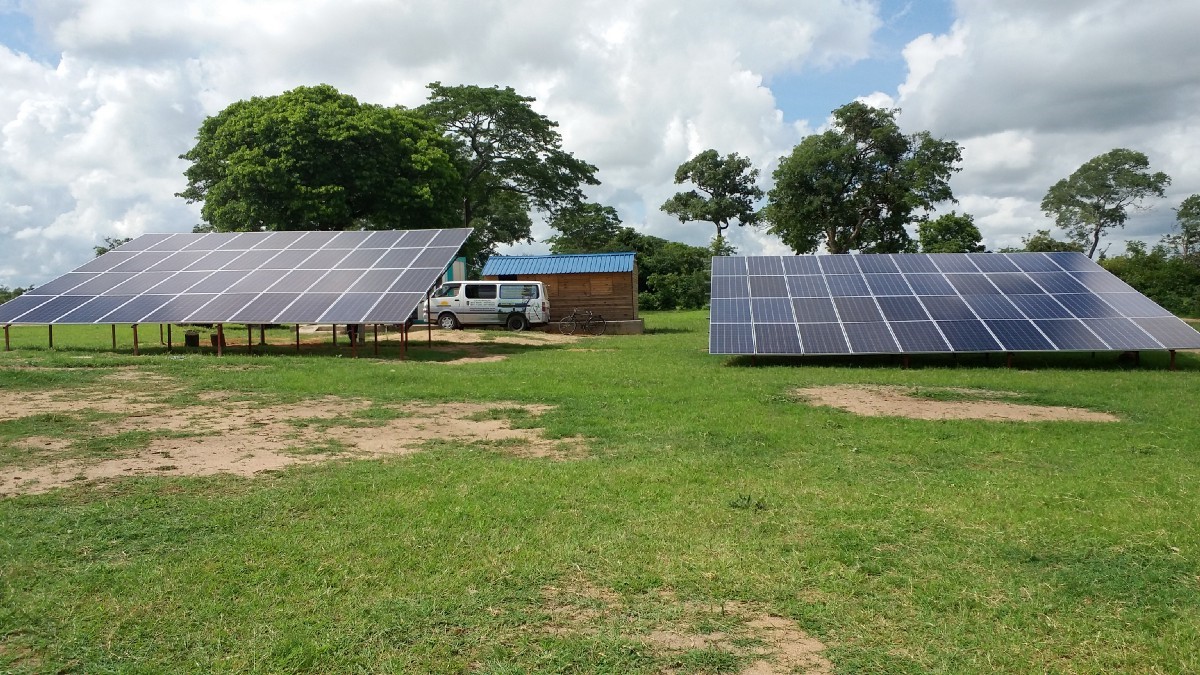
By Adedapo Adesanya
The Managing Director of the Rural Electrification Agency, (REA), Mr Abba Aliyu, is poised to attract an estimated $1.1 billion in additional private-sector investment to further achieve the agency’s targets.
He said that the organisation has received a $750 million funding in 2024 through the World Bank funded Distributed Access through Renewable Energy Scale-up (DARES) project.
He added that this capital is specifically intended to act as a springboard to attract an estimated $1.1 billion in additional private-sector investment, with the ultimate goal of providing electricity access to roughly 17.5 million Nigerians through 1,350 new mini grids.
Mr Aliyu also said that the Nigeria Electrification Project (NEP) has already led to the electrification of 1.1 million households across more than 200 mini grids and the delivery of hybrid power solutions to 15 federal institutions.
According to a statement, this followed Mr Aliyu’s high-level inspection of Vsolaris facilities in Lagos, adding that the visit also served as a platform for the REA to highlight its decentralized electrification strategy, which relies on partnering with firms capable of managing local assembly and highefficiency project execution.
The federal government, through the REA, underscored the critical role the partnership with the private sector plays in achieving Nigeria’s ambitious off-grid energy targets and ending energy poverty.
Mr Aliyu emphasized that while public funds serve as a catalyst, the long-term sustainability of Nigeria’s power sector rests on credible private developers who are willing to invest their own resources.
He noted that public funds are intentionally deployed as catalytic grants to ensure that the private sector maintains skin in the game which he believes is the only way to guarantee true accountability and the survival of these projects over time.
General
FG Eyes Higher Allocation as Senate Moves to Amend Revenue Sharing Formula
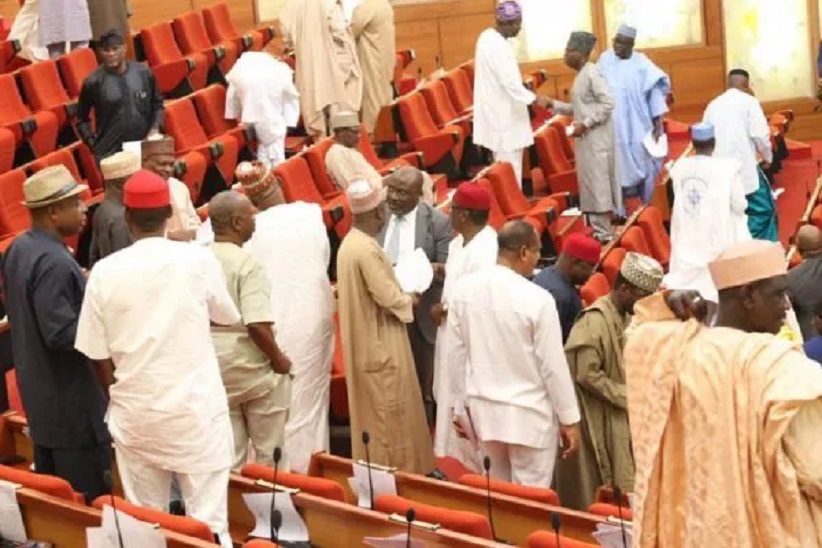
By Adedapo Adesanya
The Senate has proposed a review of the current revenue-sharing formula among the three tiers of government, seeking to allocate more funds to the federal government.
The proposal is contained in a constitutional amendment bill titled Constitution of the Federal Republic of Nigeria, 1999 (Alteration) Bill, 2026, sponsored by Mr Karimi Sunday representing Kogi-West, which passed first reading during plenary on Tuesday.
Coming amid ongoing calls for a new revenue formula to favour states and local governments, the bill argues for an increased federal share from the existing formula.
Under the current revenue sharing formula designed during the President Olusegun Obasanjo administration, the federal government takes about 52.68 percent of the total revenue generation by the nation in a month, the 36 state governments including the Federal Capital Territory, Abuja get 26.72 per cent and the 774 local governments share 20.60 per cent. The oil producing states of the Niger Delta region receive 13 per cent revenue as derivation to compensate for ecological damage of oil production in the region.
Defending the bill, the senator in a media conference on Tuesday stated that the federal government is overburdened by responsibilities such as the rehabilitation of dilapidated Trunk A roads and rising security costs, adding that available funds are no longer sufficient.
Ahead of its second reading, the lawmaker alleged that some states have little to show for funds received from the federation account.
The battle to change the sharing formula has been ongoing for more than 12 years. In 2013, the Revenue Mobilisation Allocation and Fiscal Commission (RMAFC) resolved to undertake a review to achieve a balanced development of the country.
To achieve that objective, the commission embarked on a nationwide consultation to the 36 states and also met with notable persons, including traditional rulers on the issue.
In December 2014, the commission came out with a proposed new revenue formula, which was submitted to the government. However, the report was not implemented.
Proponents have argued that the review of the revenue allocation among the federal, states and local governments of the federation has become necessary due to the current economic realities the country is facing.
General
African Energy Bank Plans to Raise $15bn in Three Years
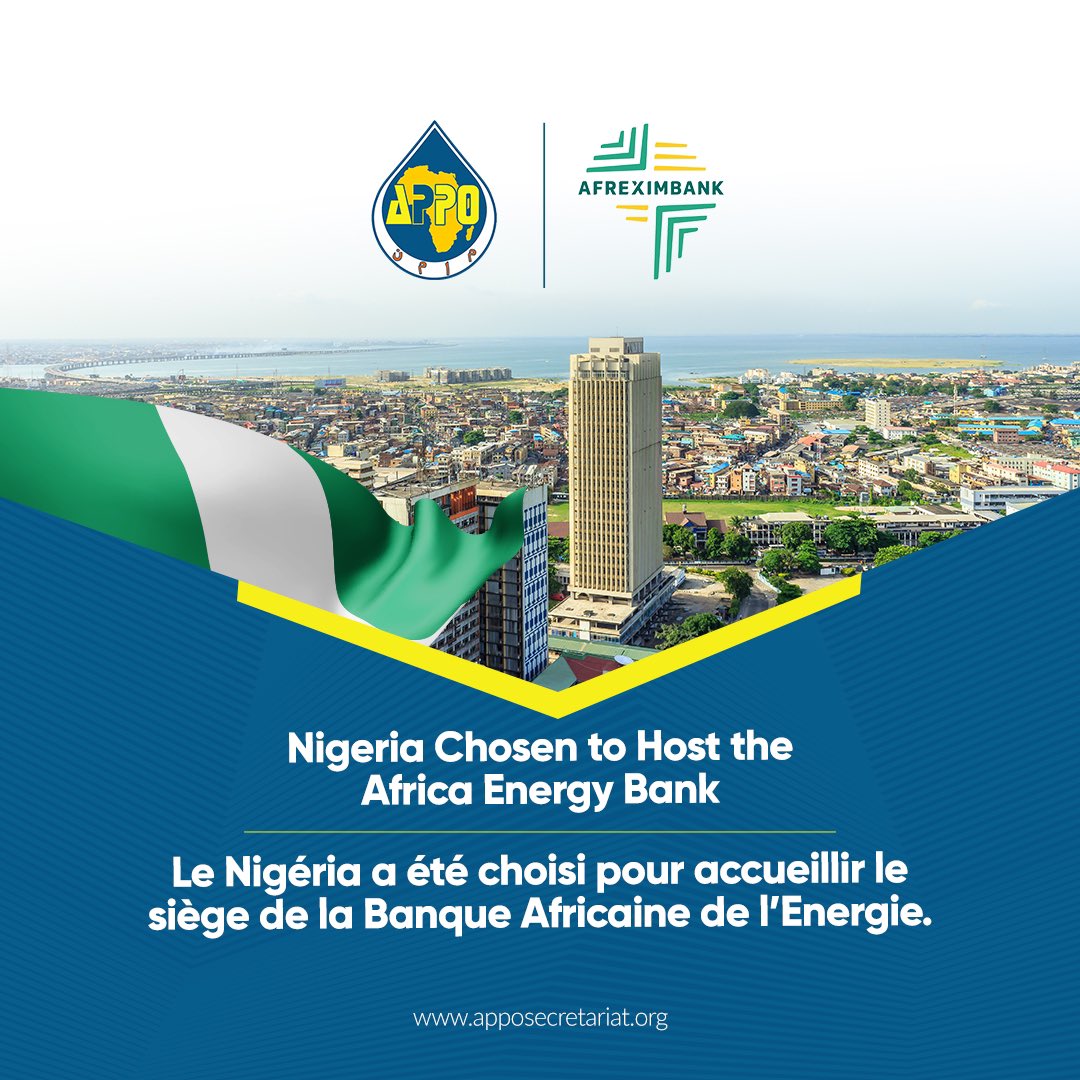
By Adedapo Adesanya
The African Energy Bank (AEB) plans to raise $15 billion in its first three years of operations to fund strategic energy projects.
The Secretary General of the African Petroleum Producers’ Organisation (APPO), Mr Farid Ghezali, made this known at the opening session of the Nigeria International Energy Summit (NIES 2026) on Tuesday.
The bank which is set to launch in Abuja in the first half of 2026 has set a target of mobilising $200 billion for midstream and downstream energy projects across the continent.
“The African Energy Bank is designed to unlock the 200 billion needed for our midstream-downstream project by 2030.
“Our goal is to raise $15 billion in just three years with this increased liquidity,” Mr Ghezali stated.
The APPO secretary general decried that Africa’s energy still faces huge export of its oil and gas despite having a huge market for its utilisation within the continent.
“We are still exporting about 70 per cent of our crude oil and 45 per cent of our natural gas, losing $15 billion per year. This is an added value that we could generate locally, especially in the midstream and downstream segments.”
He pinpointed that financing hurdles remained the main bottleneck for the continent, as the cost of financing in Africa was 15 to 20 per cent, compared to only 4 to 6 per cent in Asia.
He said the disparity was unacceptable and had stalled over 150 projects, including refineries and the Ajaokuta–Kaduna–Kano (AKK) Natural Gas Pipeline.
Mr Ghezali also said that APPO’s 18 national oil companies face isolation, “Our 18 national oil companies’ NOCs in APPO often operate in isolation, without a common stock exchange, which severely limits regional synergies.
He noted that the AEB was set to offer “competitive regional pricing” through unified intra-African gas and oil pricing for “savings of up to 30 per cent on their energy imports, a potential gain of $1.4 billion for Africa,” plus “direct access to investors.
He highlighted the three-phase road map for the AEB to include: “Phase one, which, as I said in the first half of 2026, launches the African Energy Bank platform with 10-pillar projects involving countries such as Nigeria, Angola, and Libya. APPO certification and integration of IOCs such as Shell or ENI.”
“Phase two, in 2027, we plan to start a regional gas-oil trade, integrating the principles of the Bassari Declaration for 15 per cent local content.”
Phase three, reaching 2030, the African Energy Bank will be a true African financial hub, with $200 billion mobilised.”
He said expected results included, “Project financing for billions of dollars, regional savings of around 30 per cent of import costs, 500,000 direct jobs created in the local midstream.”
-

 Feature/OPED6 years ago
Feature/OPED6 years agoDavos was Different this year
-
Travel/Tourism9 years ago
Lagos Seals Western Lodge Hotel In Ikorodu
-

 Showbiz3 years ago
Showbiz3 years agoEstranged Lover Releases Videos of Empress Njamah Bathing
-

 Banking8 years ago
Banking8 years agoSort Codes of GTBank Branches in Nigeria
-

 Economy3 years ago
Economy3 years agoSubsidy Removal: CNG at N130 Per Litre Cheaper Than Petrol—IPMAN
-

 Banking3 years ago
Banking3 years agoSort Codes of UBA Branches in Nigeria
-

 Banking3 years ago
Banking3 years agoFirst Bank Announces Planned Downtime
-

 Sports3 years ago
Sports3 years agoHighest Paid Nigerian Footballer – How Much Do Nigerian Footballers Earn


